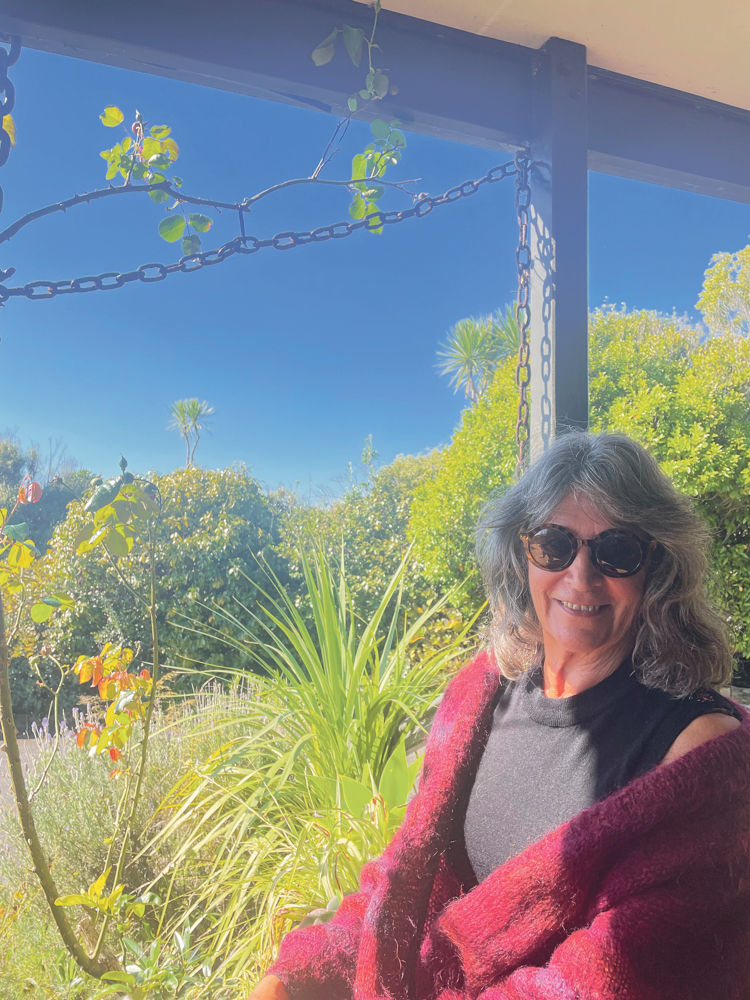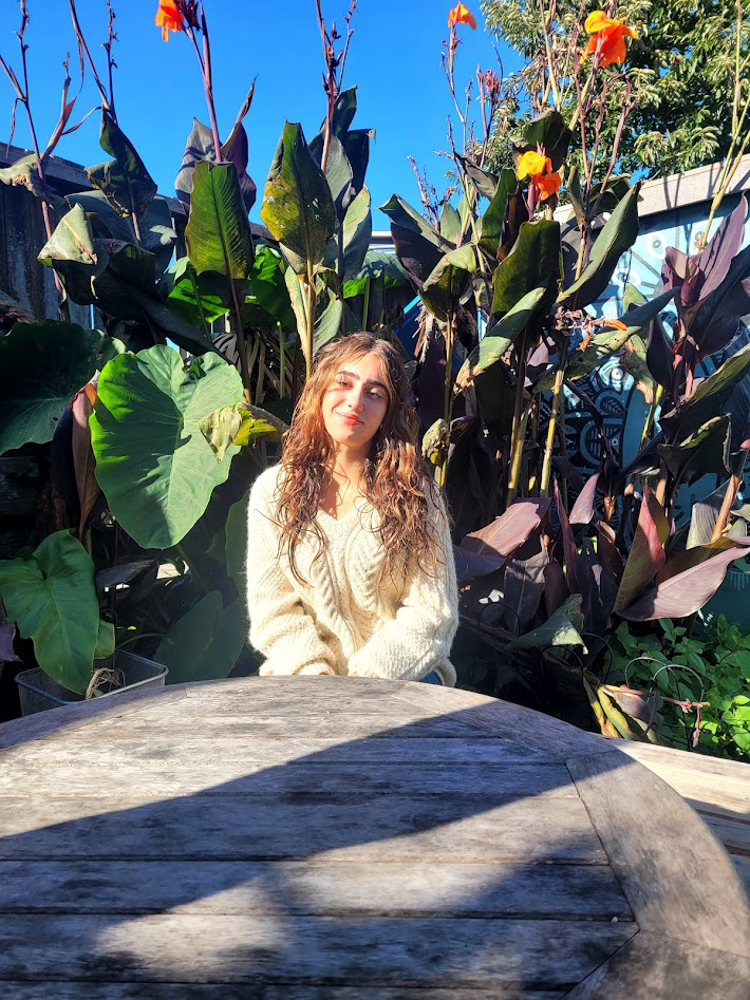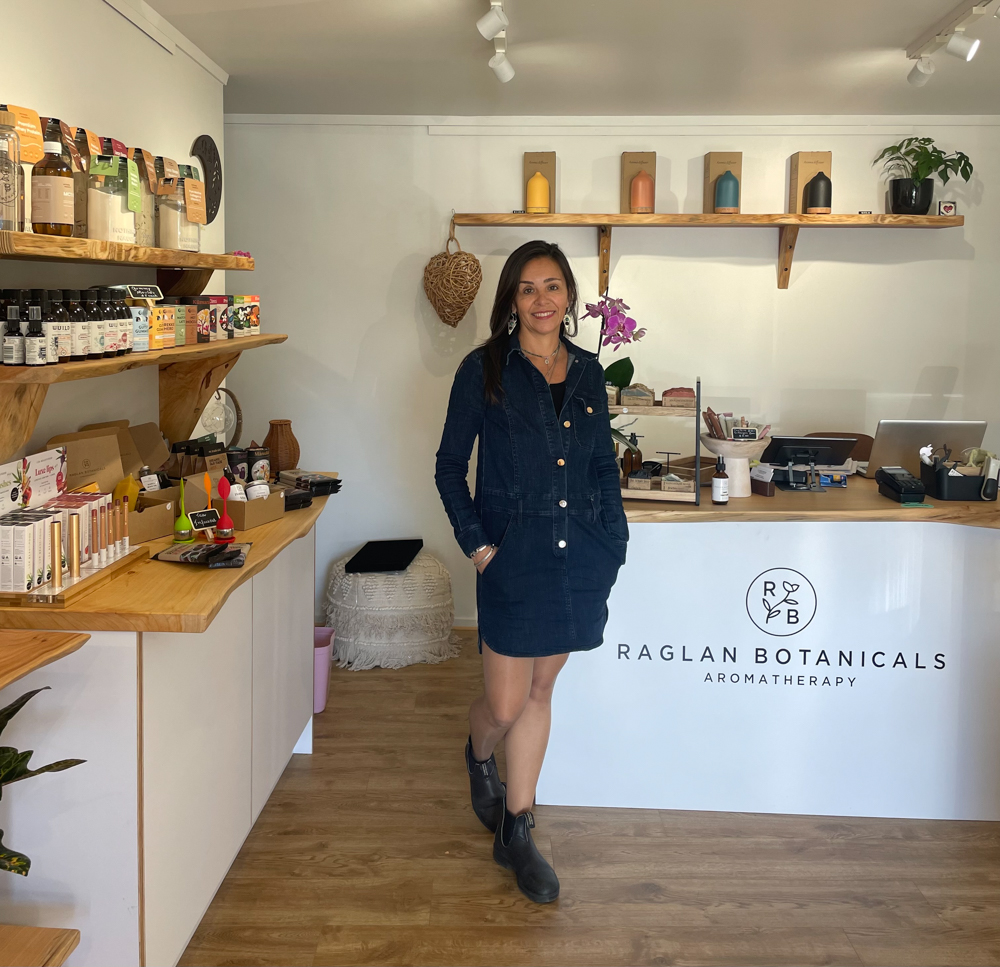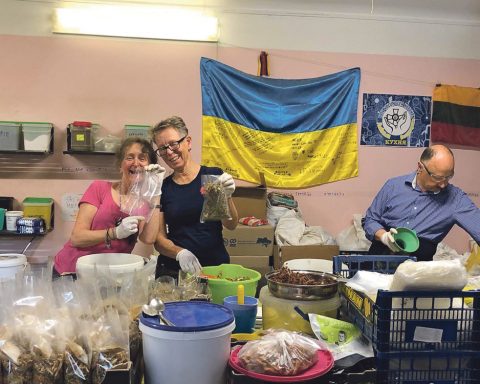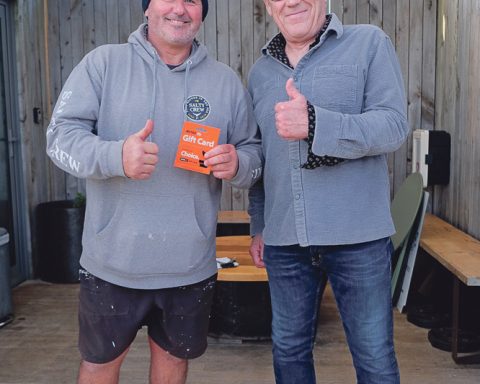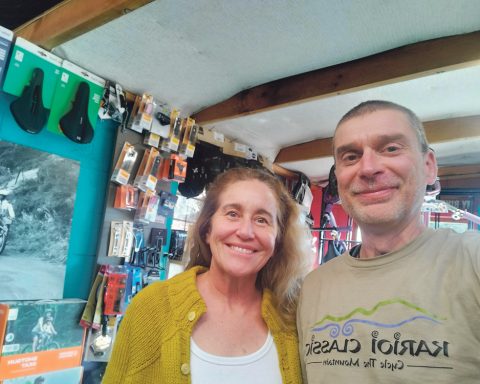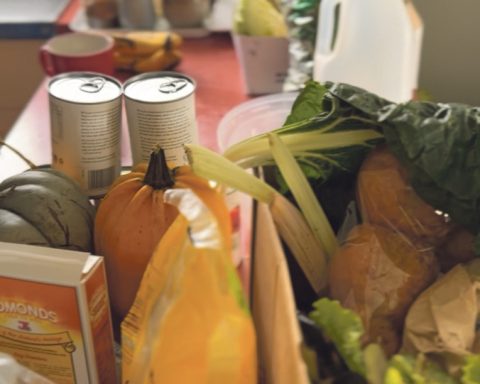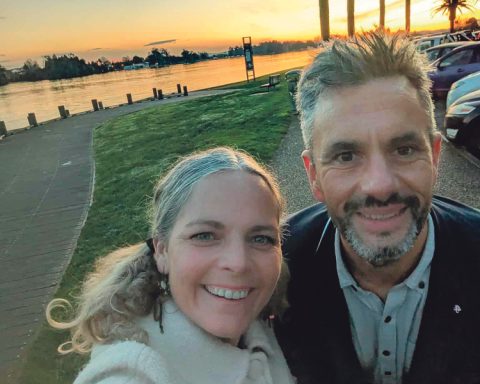This month I sat down with Wanda Barker, an artist and retired social worker and therapist. Wanda creates in Little Hill Studios, an artist collaborative on Hills Road. We sat out in the sun at her place and talked about mental health, acceptance and facing the gifts of darkness.
What is your relationship like with your mental health and is it something you consider every day?
It’s pretty good now because I’ve had 72 years of practice! Do I think about it every day? No. Mostly I’m busy doing things that nourish my general health. It’s not that crises don’t happen or things don’t impact me but I know where I need to go with it now. If I’m feeling a bit up and down then maybe I need to do something physical or have a day in the garden. I should paint something or write a poem. I just do the stuff that makes me feel good. My artistic expression is a huge part of it, and it has been that way all my life. I’m one of those people that, if I was starting out now, would get a diagnosis – Asperger’s or somewhere on the spectrum or ADHD – but that wasn’t available. So I did other things. My father would always say, “You’re so restless.” My response was, “No, I’m curious.”
What was your relationship like with your mental health when you were younger?
I was a wild teenager! My poor parents! I was a curious mix of quite introverted but I had an extroverted persona. I was often put in leadership roles that I would never volunteer for. The teachers saw something in me but I never felt like I was that person. I muddled my way through my 20s, like everybody. I had a really good cohort of friends and a loving family. I must have driven my parents mad though, because I wasn’t an ordinary older daughter. I was responsible but not really containable. I just did my own thing. A lot of my energy was pushed into sports because there was no other alternative. And then my whole career; social work and therapy, it’s the empathy gene. At the end of work, the vessel was empty. I was empty. So, a very important part of my career training was self care and how you manage your energy levels when you are giving out so much.
When you’ve been at your lowest ebb what has kept you going?
Just knowing that this too shall pass. I may be thinking this but I am not my thought. I try to just accept this for what it is right now. If I can change what I can change, that’s fine. If I can’t change it, I have to accept it or I have to let go of it. I think, what is my role in this? Do I need to have an opinion? I try to interrogate myself. Just pulling right back and thinking, hold on, this is impacting me, why? Does it need to? What someone thinks about me is none of my business, it’s all about them. Remember that! Also don’t be afraid to let people go. Even people that may have been really close to you and dearly loved, you let them go. I used to be the first one running out with the band aid whenever there was a wound. I have learned over the years that I don’t always have to be that person. In fact, I’m too old and too tired to be that person now. I used to go into things quite naively and I would get burned. But now I’m not so readily available. Having a really strong sense of my boundaries is what gets me through. I’m aware of what I can give and what I need to step back from.
What are some of the lessons that you’ve learned over your life?
Humour! Laughter is medicine. I made a painting recently and it says, “It’s a great day, not stabbing anyone right now”. This life is precious and it’s temporary. My thoughts may be really dominating at this moment but tomorrow they won’t be. There’ll be another whole set of things to be concerned about. Sitting in that space of knowing that nothing is fixed. It is all transient. And being able to laugh in the face of the darkness. I’m a shadow dweller. A constant theme in my life and art is bringing that stuff into the light and exploring it. That’s my curiosity. Because if you don’t, it haunts you from behind. Expose the so-called negative emotions to yourself. Don’t be afraid of your anger, your jealousy, your bitterness. Just explore them for what they are. Often they are telling you something. Jealousy is telling you very clearly what you want and what is missing from your life. Bitterness is telling you what you’ve given up and perhaps shouldn’t have. Mary Oliver, the poet, calls them the gifts of darkness. They are amazing things but we have relegated them to the shadows. Bring them out! Take a real good look at that stuff and then lay it to rest. A lot of my artwork includes broken china or things I’ve smashed in the sink. Often they were treasures or wedding gifts, but I was really wild and I just smashed them. And then I had regret and remorse. I’ve got to deal with this, no one else told me to smash that thing. I did it. So what do I do with it now? I try to make it beautiful again and I put it in a painting.
It’s the perfect example of facing the darkness. I was going to ask you how your artistic practice informs your mental health but clearly it is so intertwined that it is not even a separate thought.
No, it’s not. A lot of my art is emotionally expressive. I think when you’re not afraid of yourself, you’re not afraid of others. If you’re not afraid of your own anger then you can sit with someone else’s fury. But if you’re afraid of your own sadness or grief, how do you sit with someone else’s? You can’t. You’re suppressing them. You don’t have to fix them. In fact we can’t fix them and that is ok.
What are the tools in your toolbox?
This may sound a little etheric, but patience. Patience with self and patience with others. Knowing that there are some things I can’t fix. In terms of my personal practices; yoga, pilates, walking, gardening. Often I can have something that I think is a problem then I walk it off. That’s very cheap! Another interesting thing I have in my toolbox is determination. I am a really disciplined person and people would probably be surprised to know that. But I have quite a routine. I get up in the morning and make a cup of tea, I do half an hour of stretching or exercise, I go off to my pilates class then I’ll go for a walk. I will sit at the computer and write a poem every day. I’ll be down in the studio for a couple of hours every day. I am very disciplined in making sure I am getting what I need.
